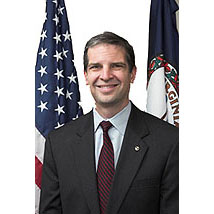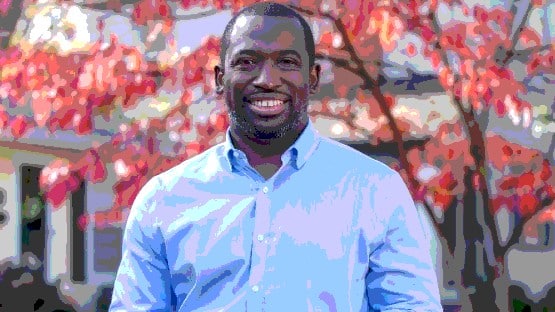
Transportation Showdown
There’s no question about it: transportation is, and deserves to be, a big issue. We’ve neglected important infrastructure maintenance for too long, and many areas have long gone without needed transportation improvements. If we want Virginia to remain highly economically competitive, we have to take transportation seriously.
I’ve long believed that we need to reevaluate our spending priorities, and that transportation deserves a greater share of state revenues. To that end, I’ve carried legislation in the past which would increase the percentage of the sales tax dedicated to transportation—the Governor has included a more modest version of this approach in his budget amendments—and back the expansion of the Infrastructure Bank.
But mine is far from the only approach, and there are already a few proposals for taking another stab at a gas tax increase. Tax hikes at the pump have been rejected several times before, but we appear to be headed for a showdown on the issue again this year. Personally, I believe that we need to do a far better job of prioritizing the tax revenue we already receive before we look to bring in more of it, but with these proposals on the table, I also believe that it’s all the more important that we finally move forward on a Transportation Lockbox Amendment, protecting the Transportation Trust Fund against raids for other purposes.
Uranium Mining
Coles Hill might just feature the best-known pasture land in Virginia, and with potentially billions of dollars worth of recoverable uranium ore below the surface, it’s little wonder. The past few years have featured an extensive back-and-forth between proponents and critics. The upside is obvious: billions of dollars for an economically depressed region, potentially more than a hundred million dollars in tax revenue, and last but certainly not least, as many as a thousand new jobs over the life of the mine.
The reason for the legislature’s involvement, however, is also clear: we have an obligation to look out for public health, and need to know that any such mining operation can be conducted safely and effectively, and that the Commonwealth won’t get stuck with an unexpected level of responsibility for securing the site.
Specifically at issue is whether to lift Virginia’s existing moratorium on uranium mining. The Governor’s office has worked to develop model regulations for a uranium mining operation here in Virginia so that legislators can make an informed decision, and a number of studies have been conducted over the past year or two. As a firm believer in an all-of-the-above energy strategy, and as someone who would love to see this sort of job creation, I’d like to see this move forward if we have adequate assurances of safety. I look forward to a spirited discussion of this issue.
Health Care
And you thought Obamacare was last year’s issue. Hardly: not only has the Supreme Court revived a challenge to the law based right here in Virginia, but the Commonwealth will also be asked to make some important decisions about implementation. Governor McDonnell has staked out his position, deciding against establishing a state exchange, deferring to allow the federal government pick up the costs and avoid establishing the program in Virginia law in the event that a future challenge to the health care act succeeds. I agree with the Governor on this; while some have argued that if an exchange is mandated, Virginia is better off running its own, there’s just too much downside right now. We’re always free to reevaluate that decision at a later date.
There also appears to be little appetite for the incredibly costly Medicaid expansion authorized under the federal law but made optional by the Supreme Court decision. Medicaid was originally intended to assist the disabled and children in low-income households, but its scope has expanded over the years, and in an attempt to massively expand the federal role in health care while keeping federal costs down, Obamacare imposed an extraordinarily expensive new Medicaid mandate on the states. The expansion isn’t in the budget, but I’m sure we will see efforts to add it – efforts I’ll strenuously oppose.
Texting While Driving
While it’s already illegal, there’s a movement afoot to ramp up enforcement and penalization of texting while driving. Currently, texting while driving is a secondary offense, meaning that you can only be fined for it if you were pulled over for another offense, like speeding or reckless driving, but some legislators are looking at making it a primary offense and turning it into a misdemeanor, carrying a fine of up to $2,500 and the possibility of jail time.
There are some concerns about this approach in some quarters, and the legislature will have to determine whether the existing law is adequate and whether the passage of this bill would adversely impact the ability of law enforcement to cite someone for reckless driving if the recklessness stemmed from being distracted by texting. I expect extensive discussion of this issue in the coming session.
Voting Integrity
Last year, we adopted legislation eliminating the use of “affirmations” to get out of showing ID to vote. Until this year, if you showed up at the polls without ID, you could just sign a form saying you are who you claim to be and your ballot would be cast – irrevocably cast, not as a provisional ballot pending later confirmation of your identity. Making that change was a good first step, but unfortunately, amendments adopted during the veto session diluted some of its impact.
There’s still more we can and should do to ensure the integrity of our elections, including moving forward with a Photo ID requirement, something I’ve long supported. In fact, I first introduced a Photo ID bill during my second session, in 2005, and I’ve consistently fought for greater integrity in our electoral process throughout my time in the Senate. Critics have sometimes accused Photo ID proponents of engaging in “voter suppression,” but I can guarantee you that this bill is designed to suppress only one category of vote: the fraudulent variety. Fighting for the integrity of the system means that everyone who has the right to vote can — but no one else — and my bill will help Virginia achieve that goal. But more on that in a few days, when I’ll be writing you again to preview some of my own legislation.
The Issues That Matter To You
There’s only so much I can cover in this preview, which is intended to sketch a rough outline of some of the more notable issues likely to come before the General Assembly this year, but this really doesn’t even begin to scratch the surface, and just because it wasn’t on this list doesn’t mean that an issue isn’t important. I’ll write again soon to talk about some of my key legislative priorities, and I hope that, throughout session, you won’t hesitate to contact me at [email protected] to share your opinion on pending legislation. I always appreciate the insights I receive from friends and supporters across the Commonwealth!










